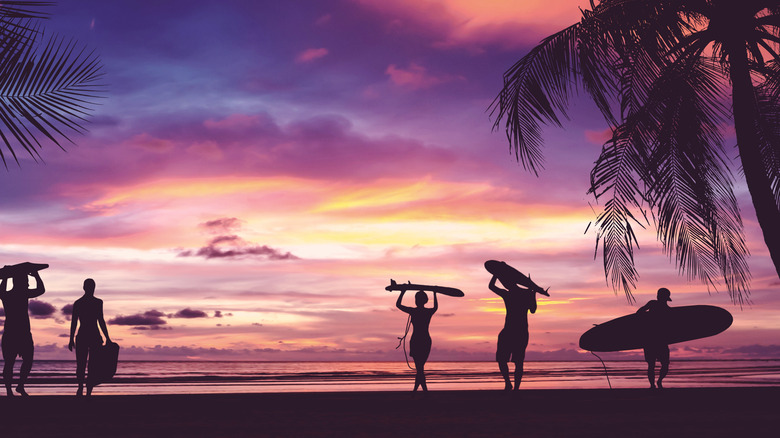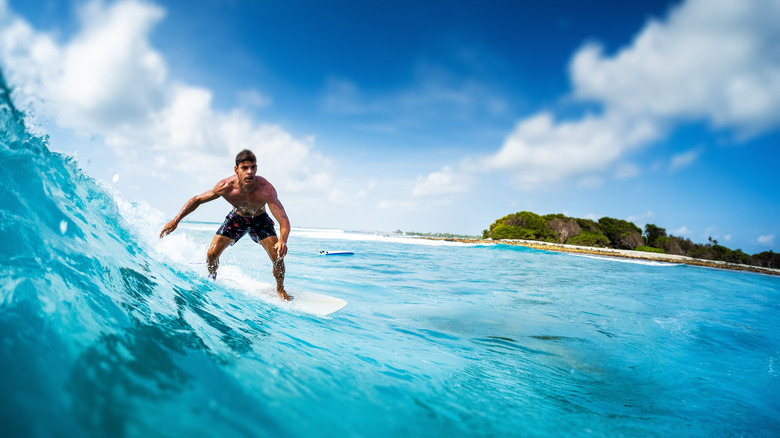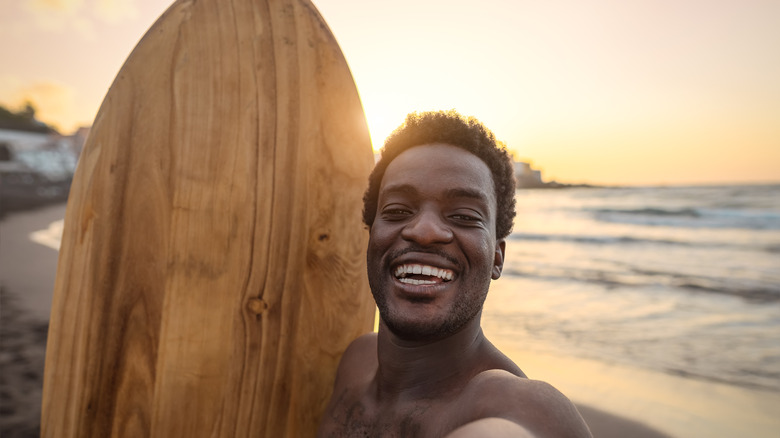Travel Guides Outdoor Adventures Water Adventures
Melanie Carden
Whether you’re new to surfing or regularly ripping up the waves, the Maldives is a paradise of possibilities. The archipelagic nation, which consists of 1,200 islands, is celebrated by travel aficionados for its clear waters, beaches, surfing, and snorkeling. According to Surfer Today, its location in the Indian Ocean and abundant atolls (coral reefs) contribute to its surf-friendly waters, which are known for consistent swells. Crests can be as tall as an average person, with plenty of opportunity to indulge in longer waves or the ever-sought-after barrel waves.
Most hotels and resorts, like The Four Seasons, even offer classes for those who want to dabble in surfer life or take their skills to the next level. With that in mind, the bigger question is: What’s the best time of year for surfing in the Maldives?
More storms, fewer tourists, epic surf

Kanchana P/Shutterstock
You’re in luck if swells are your ultimate goal for your visit to the Maldives, because the best waves coincide with the rainy season, which means fewer tourists. Most Maldives travel guides, such as U.S. News and World Report, suggest that May to October is not only a prime time for waves but also the season for the lowest hotel rates due to the increase in rainstorms. Honeymooners, families, and those with a luxurious sunbathing agenda avoid the rainy season, so surfers reign supreme when the clouds roll in.
Fortunately for surfers, Mother Nature gifts the archipelagic nation with between 5 and 10 inches of rain each month between May and October, and with those storms come increased swells and winds. So much so that Perfect Wave Travel describes the Maldives as an accessible (and exciting) for surfers of all skill levels, whether Olympic-level surfing or beginner.
But where to go?

Mihtiander/Getty Images
Of the 1,200 Maldivian islands, you’ll need to select a surf location that best supports your skills and vacation goals. Some islands are privately owned, often where you’ll find the larger, more expensive resorts. The public options offer equal surf opportunities, but My Wave Finder quickly points out that visitors need to be respectful of the Muslim culture, which often includes no-drinking and no-bikini rules on the local beaches.
Locations in North Malé Atoll, such as Himmafushi and Thulusdhoowill, help keep costs in check since most commercial flights will arrive at Malé International Airport. The farther away from here you wander, the thinner the crowds will be, and — by default — your wallet will get lighter since traveling to more distant islands requires costly boats or seaplanes.
But surf pro Mohamed Ryan Thoyyib, who manages the surf-related programs at Adaaran Select Hudhuran Fushi resort in North Malé Atoll, describes in his piece in Travel Trades Maldives the surf area known as Sultans one of the best in the Maldives. Intermediate to experienced surfers looking to tackle the Sultans but stay on a budget can find well-priced packages such as Nomad Surfer’s Premier Maldives Surf & Yoga Retreat. Choose between shared or private rooms and the optional inclusive meal package based on athletic hydration and recovery needs to best support your adventures.
And for beginners looking to stay closer to North Malé Atol, Lonely Planet suggests Coke’s Surf Camp or, for those who’re looking for luxury, Ayada Maldives. Both properties offer surf lessons, access to swells, and plenty of memories.

